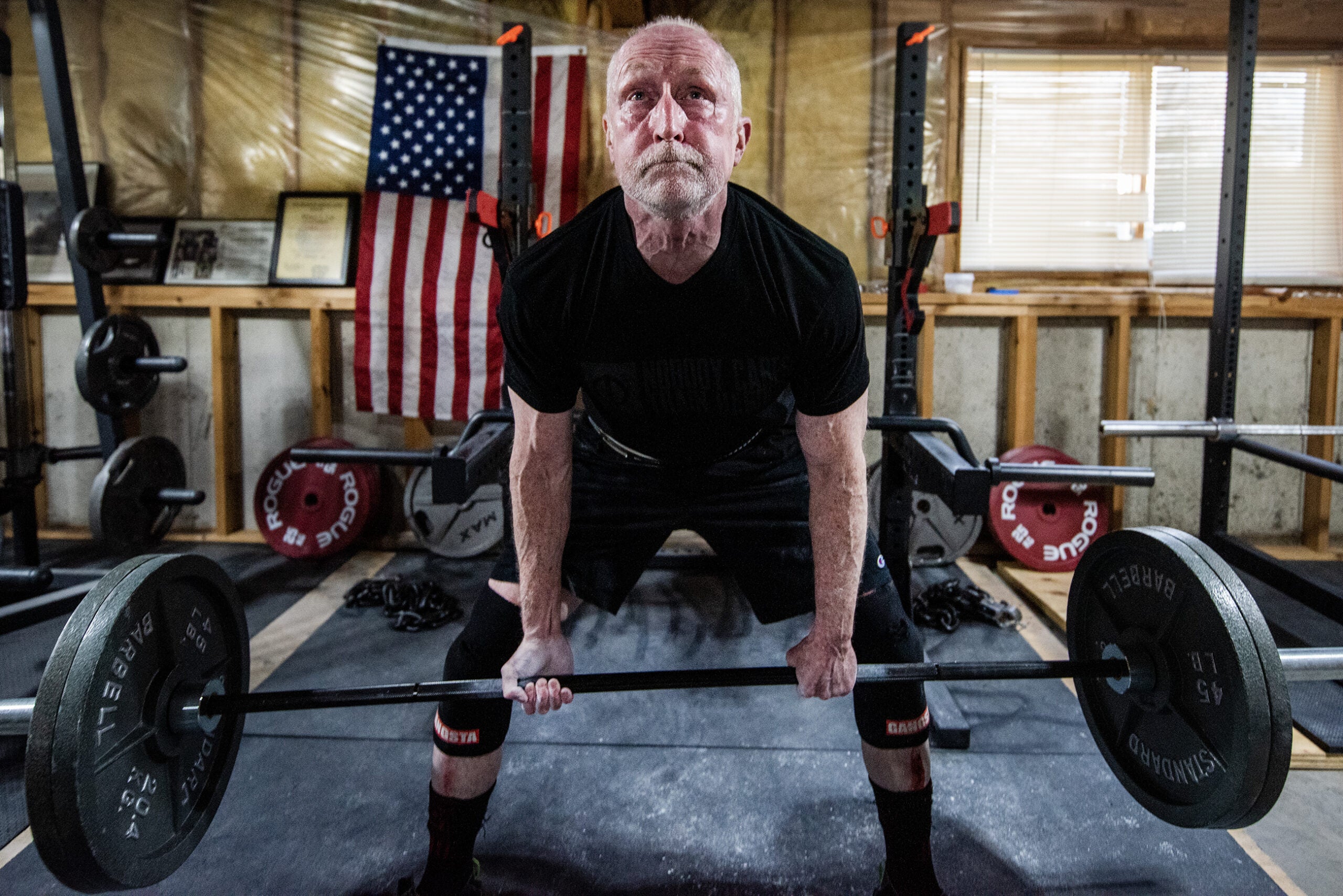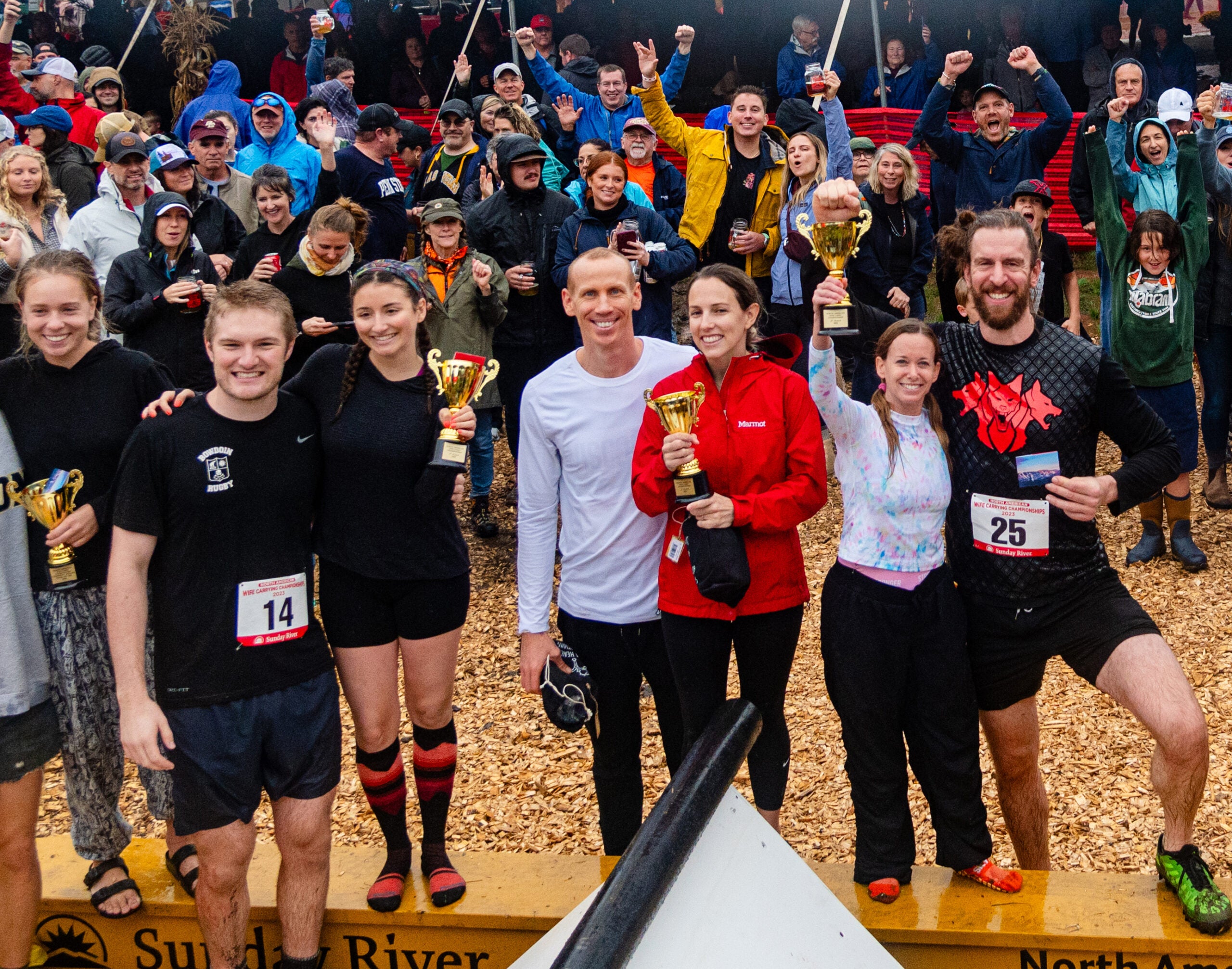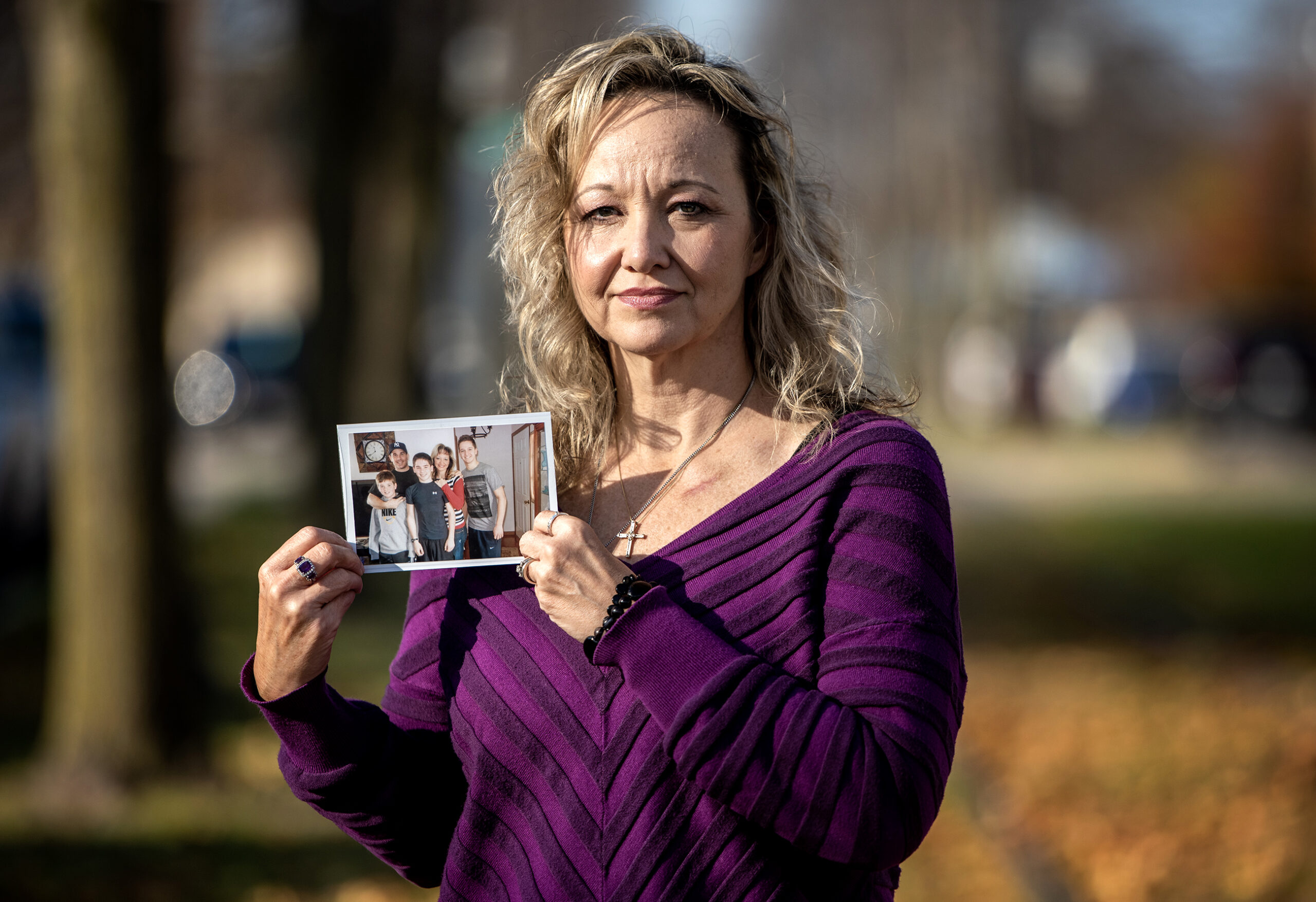As Michael Love recovered from quintuple bypass surgery, his cardiologist warned against picking up objects over 30 pounds.
But Love resisted.
“The heavy weights aren’t going to lift themselves,” he replied.
News with a little more humanity
WPR’s “Wisconsin Today” newsletter keeps you connected to the state you love without feeling overwhelmed. No paywall. No agenda. No corporate filter.
As a teenager, Love started weightlifting in his parents’ basement. Five decades later, the 66-year-old continues to lift in the basement of his home in Mazomanie and in competitive powerlifting meets.
“I’m not going to have somebody tell me I can’t do the things in life that are important to me,” he said.
Love tried to stay within the lines of medical guidance. Doctors cautioned that if he cracked his sternum working out too soon, it could be irreparable. While instructed to avoid lifting for 12 weeks, he waited eight weeks to start light workouts. By 12 weeks — with titanium plates down his sternum and a racing stripe scar on his chest — he was back to lifting 185 pounds.
And he kept going. Love’s recovery from surgery has gained attention around the state and in medical circles, because 13 months after the procedure, he set a U.S. Powerlifting Association national record for his age and weight group. He deadlifted 457½ pounds, breaking a record that stood for about eight years, he said.
Love is pursuing bigger feats, too. By late summer or fall, he aims to deadlift 500 pounds. Next year, he wants 600.
On May 6, a meet in Wisconsin Dells will serve as part of his training regimen. He hopes to peak at the right time, setting another record about two years after being cracked open “like a lobster,” in his words.
“My goal is to see what I’m humanly capable of doing,” Love said while recently sharing his story of doubt, recovery and ambition during an in-depth interview on Wisconsin Public Radio’s “The Larry Meiller Show.”
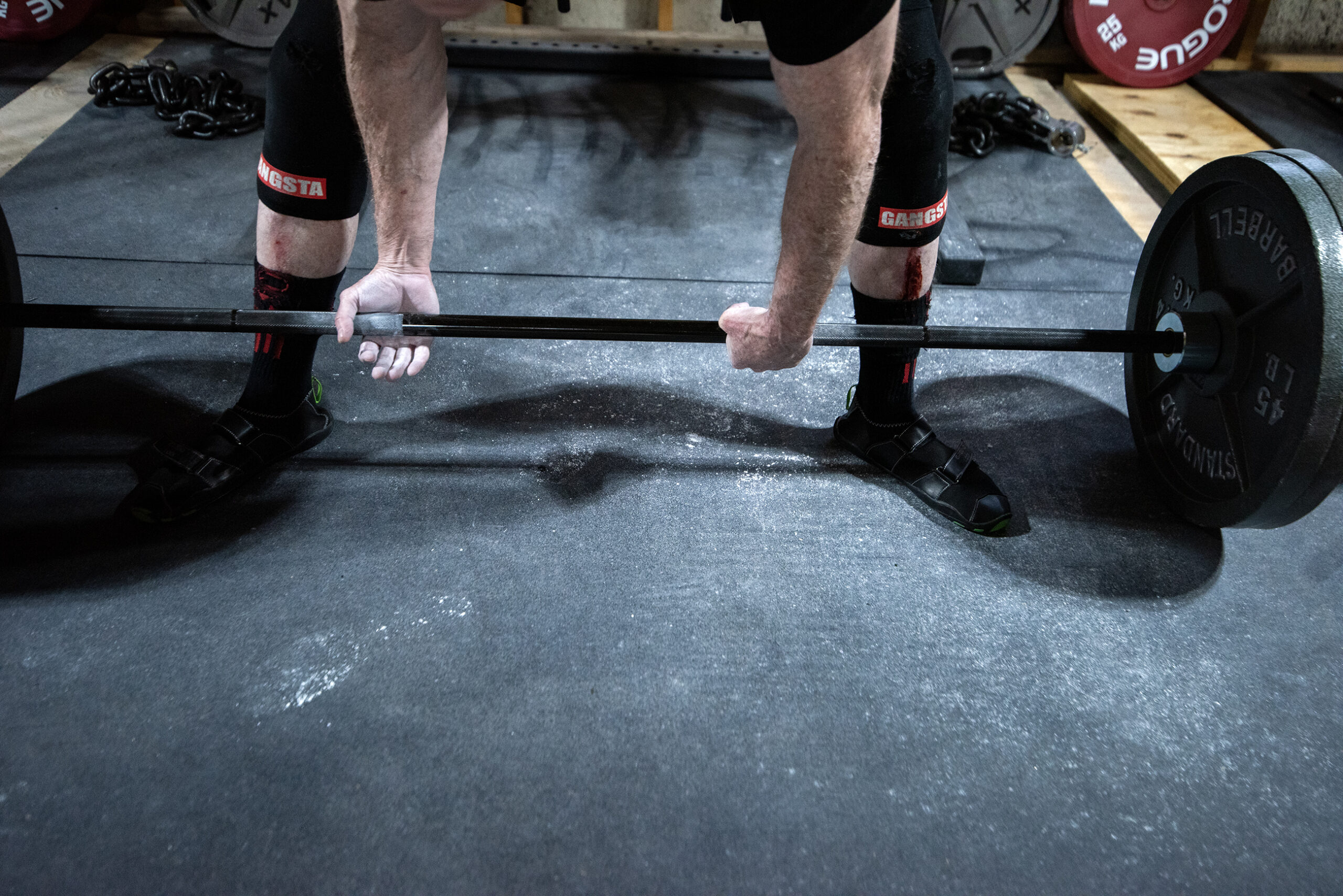
Going under the knife
One night about two years ago, Love went to bed and felt pain in his chest. Then, two weeks later, the pain returned and extended down his left arm. He called 911.
At the University of Wisconsin Hospital, emergency room doctors ran tests and found some of Love’s coronary arteries were 90 percent blocked. He needed surgery.
A quintuple bypass aims to open up blood flow when five arteries of the heart are partially or fully blocked. The surgery is a major, invasive procedure and also relatively common, according to the Cleveland Clinic.
Before Love’s quintuple bypass, he talked with doctors about his hopes of maintaining an active lifestyle and returning to powerlifting. The hospital used titanium rather than stainless steel to repair his sternum so it could withstand more stress.
“Michael (Love) was one of the healthiest people we’ve ever seen who needed this procedure,” UW Hospital surgeon Dr. Satoru Osaki said after the procedure. “It was clear to us that he would take his recovery very seriously because he was so serious about his goals.”
Love was a healthy eater. He enjoyed running, lifting and martial arts. When doctors said he needed surgery, he was in disbelief. But heart health, Osaki said, is also affected by genetics.
After a few days in shock, Love started viewing the surgery as another challenge to conquer.
“I’ve just always been someone who needs to push,” he said. “It’s been a journey, for sure.”
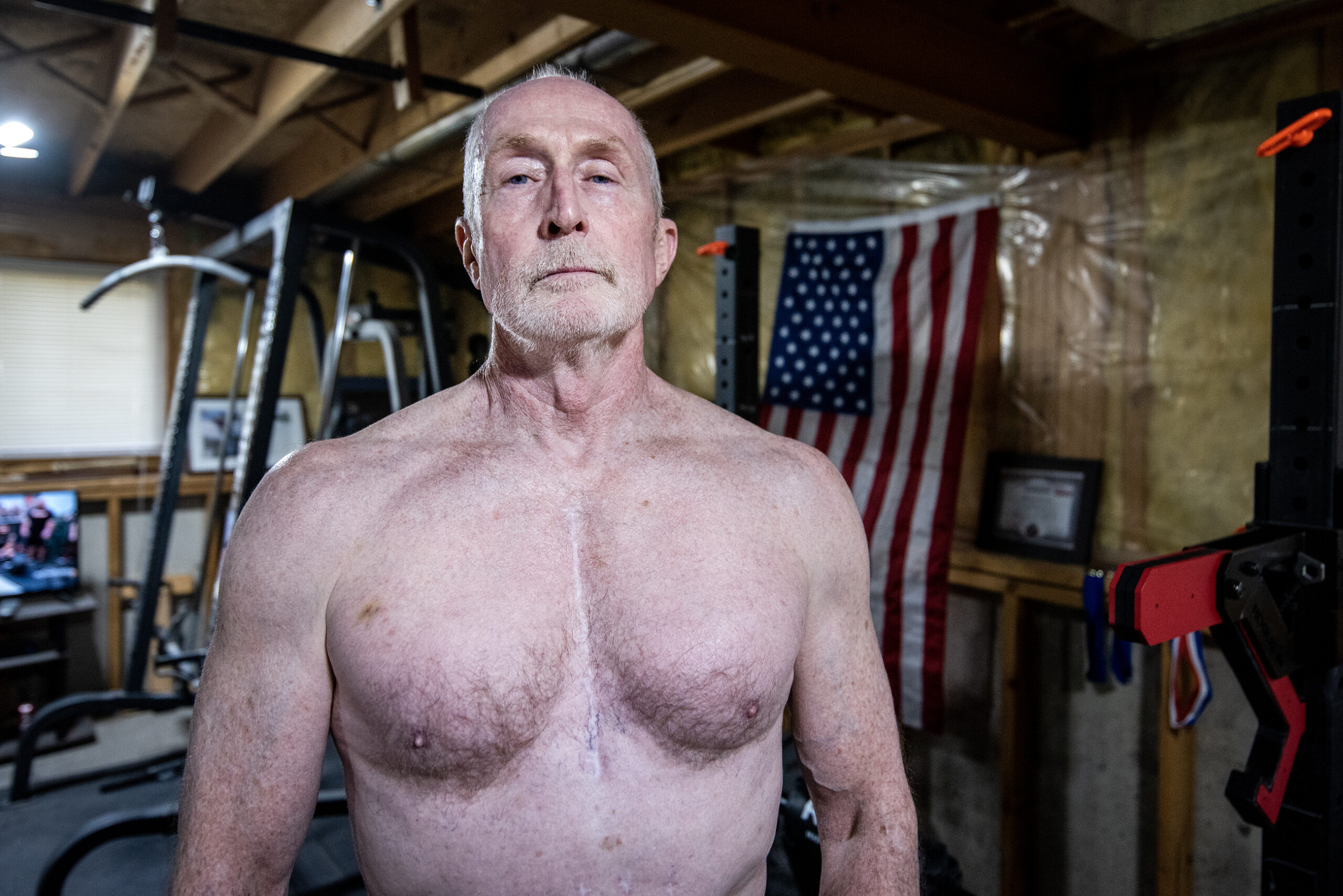
Setting a new record
Powerlifting records aren’t going to break themselves.
Love lost 20 pounds in the hospital while on a liquid-only diet. During his recovery, he received support from his wife, who tried to help ensure he followed doctor’s orders. They would negotiate. Love wanted two minutes on the elliptical. No, how about one?
A new coach, Sam Masino, also helped Love by designing a workout regimen to push him higher than YouTube videos had accomplished so far.
“I get to do the lift,” Love said. “But it’s a lot of people there with me.”
Love came to view the powerlifting crowd as a support network, too. Other competitors cheered him on during and after lifts. Those moments stick out to him.
In August 2022, when Love attempted the deadlift record during a meet in Reedsburg, he kept the story of his quintuple bypass to himself. He wanted a good lift for his age and weight, not just a good lift for someone recovering from heart surgery.
“After I broke the record, I mentioned to my new friends in the powerlifting world that I had heart surgery 13 months earlier, and they were like, ‘What? You should have the shirt off and just be rocking that scar,’” Love said.
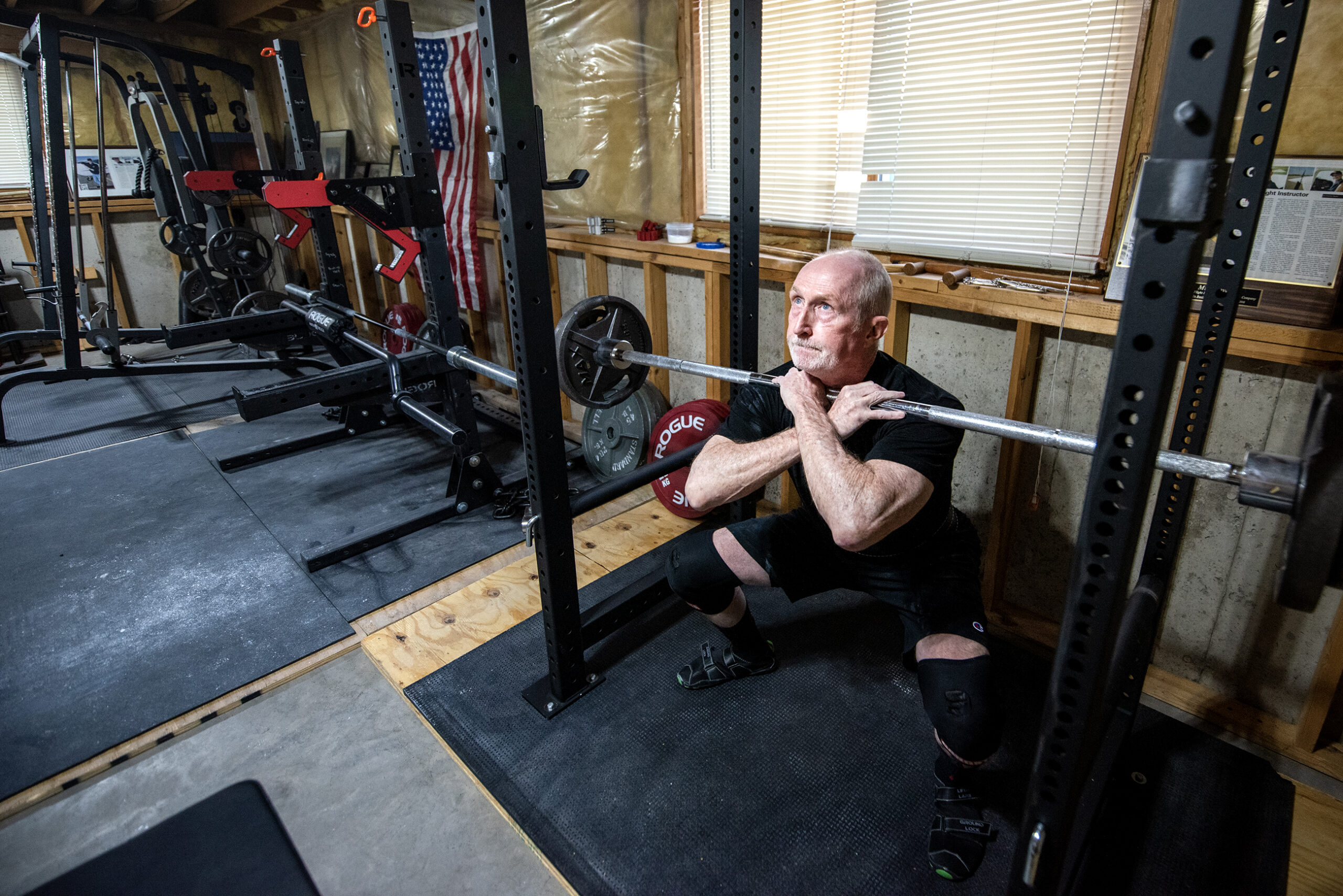
Expanding his reach
Days before his first meet of the year, Love is deadlifting in his Mazomanie basement and listening to hype music. Weights clang off the floor, sometimes so loudly his neighbor can hear.
Love’s training calls for deadlifting twice per week. Saturdays are heavy. Wednesdays are lighter and about perfecting his form. He sends videos of his lifts to Masino, his coach.
As Love works his way from 135 pounds to 265, he follows the same pattern: Get one foot in place, then the other. Take two breaths. Inhale a third breath and hold. Then lift.
He completes the routine staring at his basement ceiling. He looks upward ever since his first meet where he looked forward and saw the crowd gazing at him in a singlet.
It’s brave for weightlifters to stand in that outfit in front of a sea of strangers, Love said.
Today, Love hopes the story of his experiences reach others who undergo heart surgery and might feel timid about pursuing their own feats — even if the publicity is a little more than he would like.
“From a standpoint of helping others understand that they can lead a very active life after surgery, that’s what makes me willing to share the whole situation,” he said. “If people can even believe, ‘Yeah, I can get back to a normal life,’ then sharing this was worthwhile.”
Wisconsin Public Radio, © Copyright 2025, Board of Regents of the University of Wisconsin System and Wisconsin Educational Communications Board.

